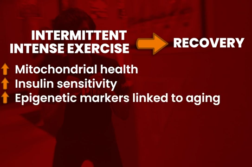ORLANDO, Fla. (Ivanhoe Newswire) — In 2015, more than 32 million Americans traveled overseas. But a trip can be challenging if you don’t speak the same language. Below are some tips for how to get by when you don’t know the lingo.
The food, the sites, the people; there’s so much to experience when you travel to a foreign country. But what if you haven’t learned the language?
No need to panic! First, download an app like Google Translate. It lets you instantly translate words, phrases, and web pages between English and more than 100 other languages. And if you snap a photo of a sign, it will interpret the text. iTranslate works with more than 90 languages. You simply speak into your phone, and the app does the rest. TripLingo is another tool that includes lots of slang translations, and a currency converter. And it helps to memorize a few key words before you go such as hello, thank you, goodbye, and I’m sorry. Gestures can be useful, but make sure you know what they mean in the country you’re visiting. For instance, the thumbs up sign is considered an insult in Greece, parts of Italy, Iran, and Afghanistan. Crossing your fingers is a rude gesture that symbolizes the female anatomy in Vietnam. And using your left hand to eat is considered unclean in India, Africa, the Middle East, and Sri Lanka.
Although it might seem slight, the number of Americans with passports is going up and reached 38% in 2015. The top five overseas locations Americans travel to are the UK, the Dominican Republic, France, Italy, and Germany.
Contributors to this news report include: Julie Marks, Producer; Katie Campbell, Assistant Producer; Roque Correa, Videographer and Editor.
To receive a free weekly e-mail on Medical Breakthroughs from Ivanhoe, sign up at: http://www.ivanhoe.com/ftk



